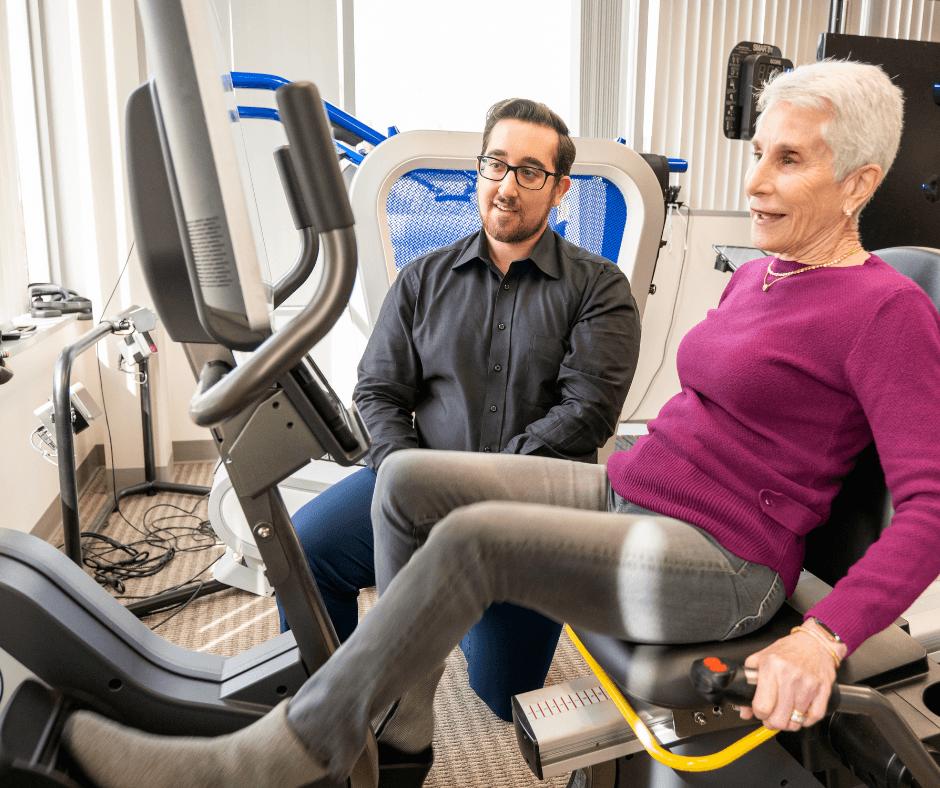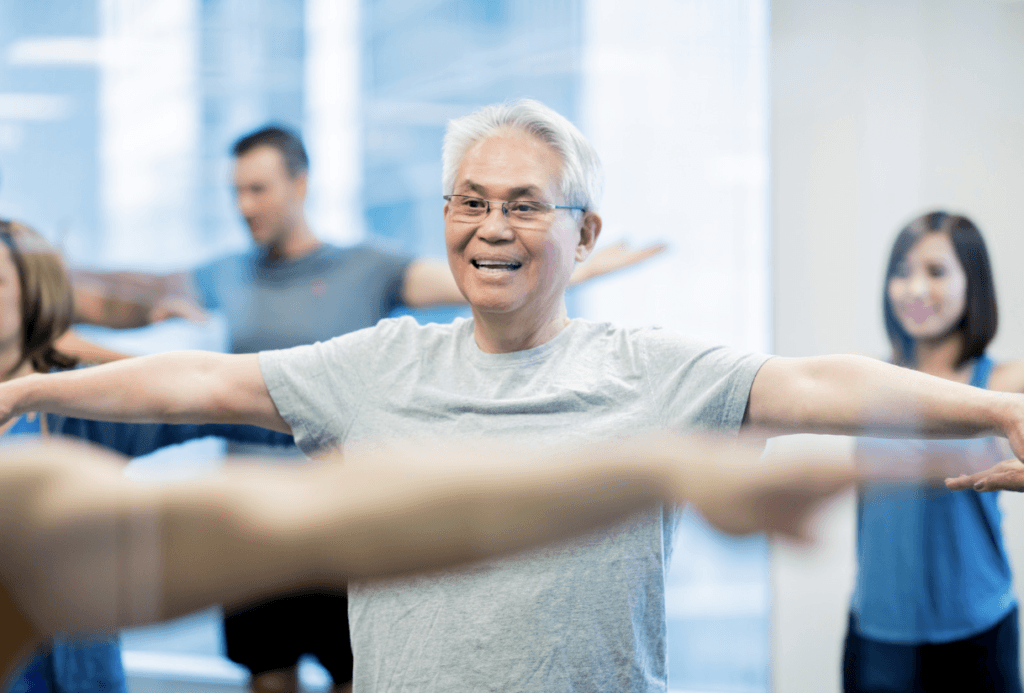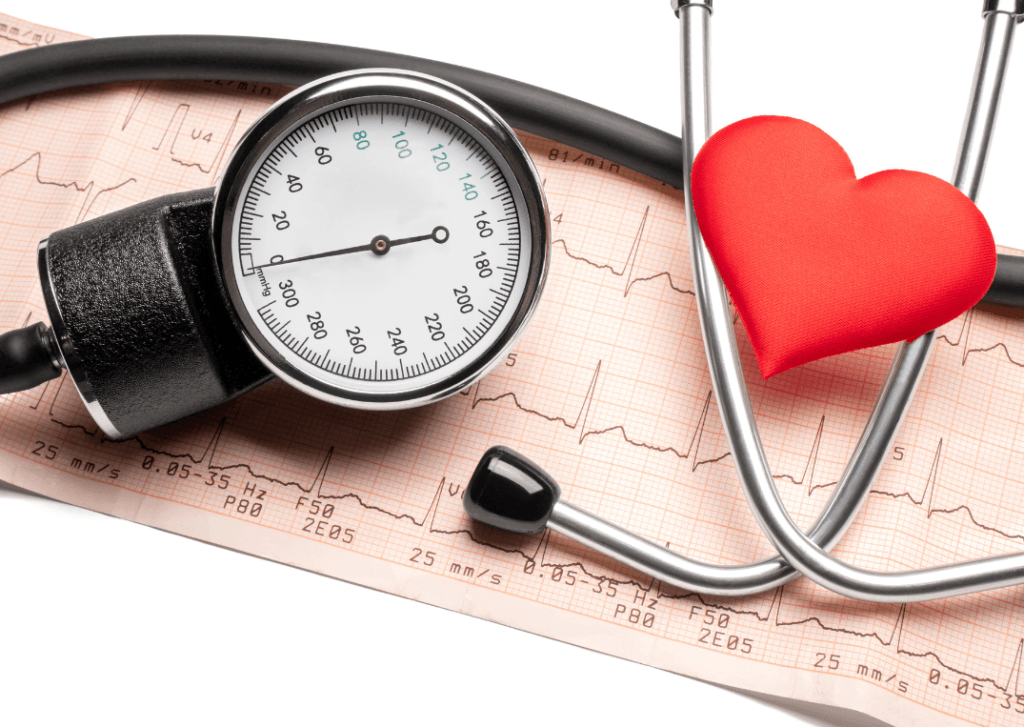
10 Things Your Doctor Wishes You’d Start Doing in Your 50s
Whatever age you are, the best time to start prioritizing your health is now. However, certain health habits are especially beneficial as you reach your 50s, before the health consequences of not doing so set in. Adopting a few simple interventions could be the key to health and longevity, doctors say, helping to stave off disease, preserve cognitive function, improve your quality of life, and more. Read on to learn which 10 things your doctor wishes you’d start doing in your 50s, if you aren’t doing them already.
1. Stick to a consistent workout plan.

Getting a minimum of 150 minutes of moderate exercise per week is one of the best things you can do for your health, doctors say. It’s associated with a wide range of health benefits, including lower incidence of heart disease, cancer, cognitive decline, mobility issues, obesity, and more. Ryan Glatt, CPT, NBC-HWC, personal trainer and brain health coach for the Pacific Neuroscience Institute® (PNI®), says that resistance training is especially useful for adults over the age of 50. “Lifting weights in a safe and progressive manner over time can prevent falls, increase muscle mass, improve strength, contribute to brain health, and assist with maintaining healthy hormone levels,” he shares. Planks, abdominal crunches, and other muscle strengthening exercises also have similar benefits.
2. Break a mental sweat.

Exercising your brain is just as important as exercising your body, Glatt says. He shares that “engaging in activities that demand both brain and body can lead to improvements in brain health, manage stress, and prevent falls.” He notes that activities that you enjoy “are more likely to be sustainable and can contribute to improved mental health.”
Social activities are especially beneficial to your cognitive health. “Social isolation and loneliness have negative health impacts on par with obesity, physical inactivity, and smoking 15 cigarettes a day and are associated with about a 50 percent increased risk of dementia,” adds Scott Kaiser, MD, a geriatrician and Director of Geriatric Cognitive Health for PNI.
3. Practice good posture.

As you age, you may experience more aches and pains—especially in your back. That’s why experts recommend evaluating your posture as you reach your 50s and making any necessary changes. Back pain can occur due to incorrect posture and weak abdominal muscles. Targeting and strengthening these specific areas is crucial to alleviate the pain and avoid potential future episodes.
To prevent back pain, doctors advise maintaining good posture by sitting upright and pulling your shoulders back and down, whether you’re sitting, standing, or walking. Initially, correcting your posture may feel strange since it’s not a position our bodies are used to holding. However, with consistent practice,, it will eventually become natural to you.
Certain exercises can also help improve your posture. To start, sit up straight in a chair with your hands resting on your thighs and your shoulders relaxed. Pull your shoulders back and squeeze your shoulder blades together, holding this position for five seconds. Repeat this exercise three or four times every day to strengthen the back muscles responsible for maintaining proper posture.
4. Warm up and cool down.

Exercise is crucial to your health, but forgetting to warm up and cool down before and after your workout can leave your vulnerable to injury—especially as you enter your 50s. Just as you wouldn’t start a car that has been parked all winter and immediately zoom down the driveway without letting it warm up, the same principle applies to your body.
Taking a few minutes to warm up before physical activity is beneficial for getting the blood flowing and informing the muscles and joints that they will soon be engaged. Cold muscles are less flexible and more prone to injury, so warming up is crucial. Experts recommend spending five minutes engaging in a lower intensity activity like brisk walking, jumping rope, or jumping jacks before stretching. Afterward, gradually increase the intensity with your regular workout.
Cooling down is equally important as warming up, as it allows your heart rate to gradually return to its resting rate and facilitates recovery. Stretching again after cooldown helps to loosen any tight muscles and enhance flexibility, preparing you for the next workout.
5. Prioritize sleep.

Getting a good night’s sleep—ideally between seven and nine hours per night—is another thing your doctor wishes you’d start doing in your 50s, if you haven’t already.
Besides staving off chronic disease including heart disease, cancer, diabetes, and depression, getting adequate sleep can help you feel your best throughout the day. Sports neurologists, sleep experts, athletic trainers, and strength and conditioning specialists will tell you that the top performers on any team and in any sport typically have one thing in common: they are excellent sleepers. In fact, many would argue that the most crucial factor in improving performance is getting enough quality sleep and reducing fatigue.
6. Quit smoking.

If there’s one thing your doctor wishes you’d do at any age, it’s quitting smoking.
Smoking not only affects your lungs but also puts a strain on your body’s filtration system, including the kidneys and bladder. They weren’t designed to handle the toxins found in cigarette smoke, and it takes a toll on them. In fact, smoking can lead to kidney failure and various types of urological cancers. Considering all these risks, smoking is truly a lifestyle habit that is not worthwhile.
7. Monitor your blood pressure.

Keeping an eye on your blood pressure is another way to keep on top of your health in your 50s. High blood pressure affects not only your heart but also has serious and long-lasting consequences for your kidneys. Unmanaged high blood pressure is a major contributor to kidney failure in the United States.
If you start early enough, before health problems arise, you can keep your blood pressure at a normal rate and your kidneys in proper working order with lifestyle modifications, he adds. These include eating well, maintaining a healthy weight, exercising regularly, and minimizing your sodium and sugar intake.
8. Eat healthy, whole foods.

When you hit your 50s, the things you used to get away with eating may begin to catch up with your health. Our bodies’ organs were not designed to handle the demands caused by the consumption of highly processed, sugary, and fatty foods. When these substances are continuously processed by our organs, serious and life-threatening consequences can occur.
Experts suggest that you base your diet on whole foods whenever you can. This doesn’t require you to remove tasty foods from your diet. Just being mindful of what you consume can be a good way to begin. If you haven’t done so already, start reading food labels this year. As a general guideline, if the list of ingredients on a package contains items that are difficult to pronounce, it’s best not to purchase it.
9. Get screened for cancer.

Advanced age is a key risk factor for just about every cancer type, which is why screenings become that much more important when you reach your 50s. By your fifth decade, you should already have been getting mammograms, prostate exams, colonoscopies, and other forms of cancer screening which may be recommended by your doctor. However, getting regular physicals and discussing screenings with your doctor can help ensure that you stay up to date.
10. Practice mindful breathing.

Another thing your doctor wishes you’d start doing in your 50s is to start practicing mindful breathing.
Taking a few mindful breaths can have a positive impact on our mind and body. By simply directing our attention to our breath and taking a moment to appreciate life, we can initiate a chain of beneficial events. This straightforward practice can unlock the power of meditation, reduce stress, and induce a relaxation response in our bodies. As a result, it can slow down our heart rate, relax blood vessels, lower blood pressure, boost immune factors, decrease blood sugar levels, improve mood, and much more.
Article adapted from BestLife.
Healthy Aging at Pacific Neuroscience Institute
At the Pacific Brain Health Center, our providers aim to help you and your loved ones enjoy greater longevity by taking a proactive approach to improving overall health, identifying cognitive changes, and intervening to optimize cognitive function and maximize quality of life. We prioritize the adoption of healthy aging approaches during both our initial brain health assessment and at follow-up visits through a combination of medical optimization and healthy brain lifestyle recommendations. Patients experience positive results with our integrative program that promotes well-being and vitality across the lifespan.
About Scott Kaiser, MD
Scott Kaiser, MD, a board-certified family physician and geriatrician, is the Director of Geriatric Cognitive Health and provides specialty geriatric medical consultations at the Pacific Brain Health Center. Focused on the needs of older patients, he works with his colleagues to provide an integrated and holistic approach to their cognitive challenges. With this “whole person” approach, Dr. Kaiser works to connect patients and their families with a broad range of resources to support their overall health and well-being.
About Ryan Glatt, MS, CPT, NBC-HWC
Ryan Glatt is an experienced Certified Personal Trainer and National Board-Certified Health & Wellness Coach with over 10 years of expertise. He specializes in promoting brain health and customizing lifestyle interventions for individuals aiming to improve brain and cognitive well-being. Ryan currently holds the position of FitBrain Director at PNI’s Brain Wellness & Lifestyle Program.
Related Articles
Link nội dung: https://trungtamgiasuhanoi.edu.vn/at-the-age-of-50-a50717.html